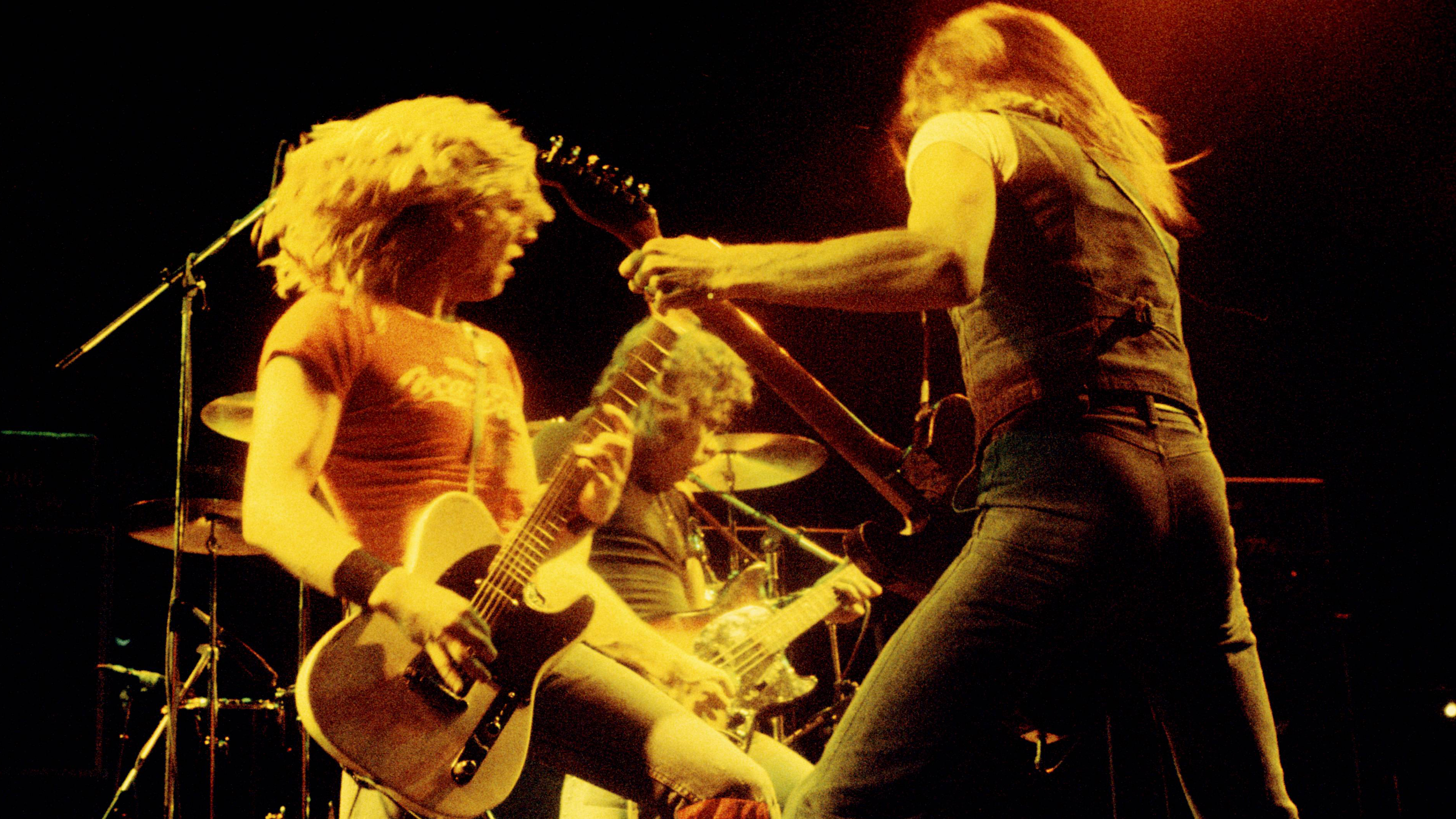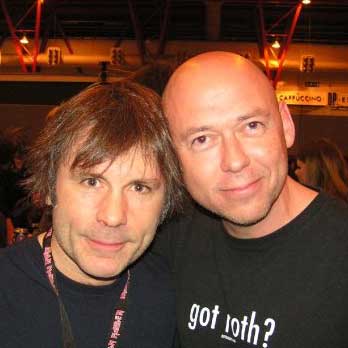“Everybody used to say how great Clapton was, but I remember saying to Eric, ‘You try playing that one riff for eight minutes!’”: How rock legends Status Quo stole a riff from The Doors and built an entire career out of it
"That song is where the Quo twelve-bar boogie shuffle came from"

Want all the hottest music and gear news, reviews, deals, features and more, direct to your inbox? Sign up here.
You are now subscribed
Your newsletter sign-up was successful
Way back in 1970, during a long night of drinking at a club in the German city of Bielefeld, the two guitarists in British rock band Status Quo heard a song that would change their lives.
Francis Rossi and Rick Parfitt had already begun to reshape Quo’s sound, moving away from the psychedelic pop of their hit single Pictures Of Matchstick Men to embrace a harder rock direction on their third album Ma Kelly’s Greasy Spoon.
But when they heard The Doors’ song Roadhouse Blues blasting at high volume in that club, it was a genuine eureka moment.
As Rossi recalled an an interview with Total Guitar: “Rick and I were in this place called the X Club. We’d been watching this couple dancing, and when Roadhouse Blues came on they started moving together in a totally different way. Really sexy. The tempo was like, wow! We were mesmerised by it.
“The way that guy and that girl moved to Roadhouse Blues was just phenomenal. And we just looked at each other and said, ‘We’ll have some of that!’
“So that song is where the Quo twelve-bar boogie shuffle came from. That was us: rinky dinky dink…”
What Rossi and Parfitt heard in Roadhouse Blues was the template for the heavy boogie shuffle that would make Status Quo one of the greatest and biggest selling rock groups of the ’70s.
Want all the hottest music and gear news, reviews, deals, features and more, direct to your inbox? Sign up here.
The song became fixture in Quo’s live set, and was recorded for their definitive 1972 album Piledriver.
As Rossi told Classic Rock: “With Piledriver, that’s when we started to double-track the guitars. That made the sound bigger. “
He added: “The cover was a funny one, though – a cartoon of a gorilla with a bomb. What’s that got to do with a piledriver? Nothing at all. But at the time I thought: “Yeah!”
Rossi said of his and Parfitt’s approach: “Fundamentally, what made it work was Rick playing that rhythm and I played off that. He played very much downstrokes and I had the left swing stroke, and they worked so well together.”
For Quo, simplicity was key. As Rossi said with a smile: “Everybody used to say how great Clapton was, but I remember saying to Eric: ‘You try playing that one riff for eight fucking minutes!’”
Rossi had this to say about the perceptions of Quo.
“Well, everybody thinks they’re better than Status Quo. They do. ‘Anyone can do that.’ Fucking tossers! They liked us being around so they could say they were better than us.
“But we were like that too. You want to be better than everybody. And we had the most fabulous following.”

Paul Elliott has worked for leading music titles since 1985, including Sounds, Kerrang!, MOJO and Q. He is the author of several books including the first biography of Guns N’ Roses and the autobiography of bodyguard-to-the-stars Danny Francis.
You must confirm your public display name before commenting
Please logout and then login again, you will then be prompted to enter your display name.
